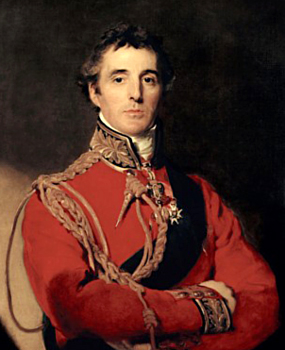 The Pindaris are recognised as plunderers on horseback who came into prominence when the Mughal Empire was disintegrating. They were also known to accompany the Maratha armies. In the 18th century India the Pindaris were popular as marauders who received no payment for plundering but they seeked the privilege to plunder on their own accord. Each group with a self chosen leader was a part of the Maratha army. However in the late 17th century it was the Muslim rulers who for the first time organised the Pindaris. Maratha leaders like Holkar and Sindhia benevolently awarded them for their services. However, with the consolidation of the British Empire the Pindaris found themselves at the receivers` end.
The Pindaris are recognised as plunderers on horseback who came into prominence when the Mughal Empire was disintegrating. They were also known to accompany the Maratha armies. In the 18th century India the Pindaris were popular as marauders who received no payment for plundering but they seeked the privilege to plunder on their own accord. Each group with a self chosen leader was a part of the Maratha army. However in the late 17th century it was the Muslim rulers who for the first time organised the Pindaris. Maratha leaders like Holkar and Sindhia benevolently awarded them for their services. However, with the consolidation of the British Empire the Pindaris found themselves at the receivers` end.
It was Lord Wellesley who was the first to point out the necessity to crush the Pindaris of Central India. However, the Pitts` India Act prevented the Company from taking any steps. On the other hand, after the disintegration of the Maratha army in 1803-04, this group primarily dwelled in Malwa and received support from the rulers of Gwalior and Indore. They assembled in the beginning of November every year and attacked the British territories mercilessly. The British tolerated this menace for a long time but finally under the governorship of Lord Hastings measures were taken to put an end to the Pindari plunders.
In 1816, the Raja of Jaipur was pinned into his capital by Amir Khan (Pindari leader), who brought up 200 cannons. In his desperation he begged again and again for a subsidiary alliance, which was granted by Metcalfe. A British force assembled on the Jaipur frontier, and Amir Khan hurriedly withdrew his precious guns. The Raja thereupon sent expresses to his `vakils` at Delhi, telling them not to sign the treaty. Metcalfe in response merely asked for an explicit declaration that the matter was finished, and remarked that the Raja was now left to his fate. In October, the Raja took fright again, and said his `vakils` had been mistaken, and implored to be accepted as a feudatory. Lord Hastings observed that he wanted the appearance of alliance with the Company, without the objectionable fact of subordination to them. He replied to the Raja that he could sign the treaty he had already rejected, but without further argument. The Raja procrastinated. But his actions had ceased to have any relevance. The stage was set for war and a comprehensive settlement.
This occurrence of the last Anglo-Maratha war was unavoidable. Nevertheless, lesser factors than the inevitability of sooner or later clearing up the appalling chaos of Central India operated towards its outbreak. In April 1816 the Governor-General received the news of a Pindari incursion into British territory, the Guntur Sircar, south of Orissa. The violation led thousands of people to distract from leading normal life and to flee from being the witness of the massacre. By 1817, the Pindaris were expelled from Malwa by the British forces. Karim Khan, another influential Pindari leader, surrendered to the British on 18th February, 1818. The Marathas also handed over another leader, Wasil Muhammad. Thus, by the middle of the nineteenth century the Pindaris had been completely crushed by the British Raj in India.



















